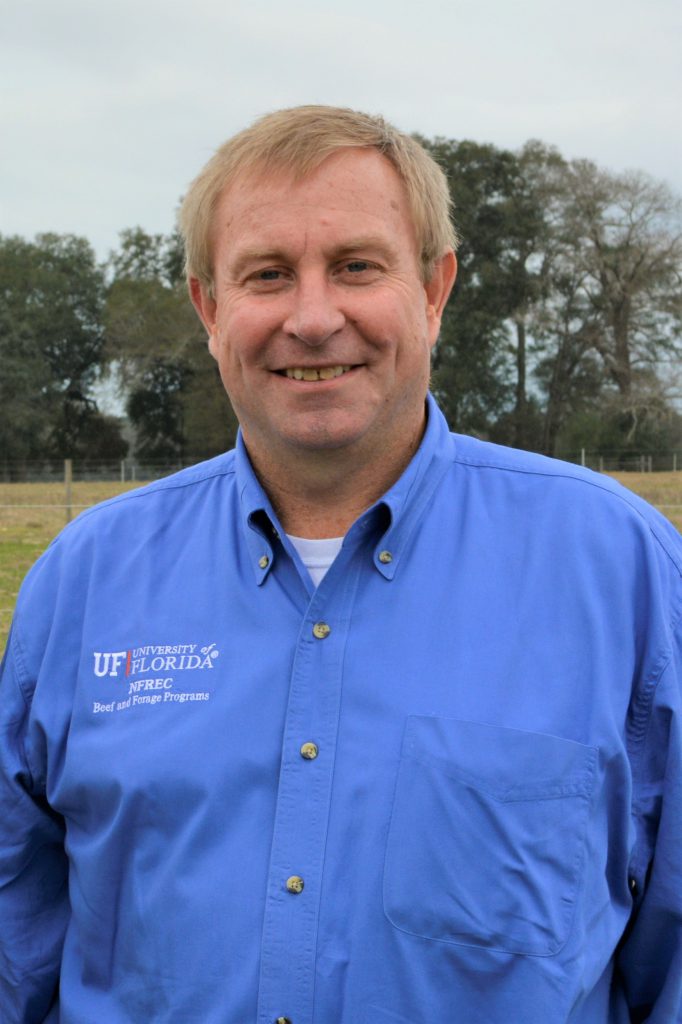This week marks the end of a very successful era at the North Florida Research and Education Center in Marianna, FL . Dr. Cliff Lamb, has received the honor of being selected to serve as the Department Head and Professor for the Department of Animal Science, at the renowned Texas A&M University in College Station, Texas. Dr. Lamb will now be the leader for over 1200 undergraduate students, 130 graduate students, 65 faculty, and several thousand acres of land and facilities (i.e., meat science lab, horse complex, beef cattle ranch, etc.).
The Department of Animal Science at Texas A&M University has achieved national and international respect as one of the largest, and most complex departments of its kind in the United States. Currently, disciplines within the department include reproductive physiology, animal breeding and genetics, food science, microbiology, equine science, dairy science, animal nutrition, and meat science.
In January 2008, Dr. Lamb began his tenure as the Assistant Director and Professor of the University of Florida’s North Florida Research and Education Center (NFREC) in Marianna, FL. During his time at the NFREC, Dr. Lamb mentored more than 33 interns, graduate students, and research associates from four U.S. states and six countries including Argentina, Brazil, Malawi, South Africa, and Uruguay. Dr. Lamb says that his greatest accomplishments, since joining the University of Florida, is “Developing students that have become leaders and advocates for agriculture. This has helped enhance the recognition of the NFREC, becoming internationally recognized for the work we do.”
With more than $7 million in grant funding to support his research, Dr. Lamb’s program has focused on reproductive technologies and efficiencies to improve beef cattle production across the globe. Key accomplishments of his program while at NFREC include:
- Through selection for improved feed efficiency, his program demonstrated that the Florida Cattle Industry could save $44.3 to $125.4 million per year
- Lead the development of a fixed-time, artificial insemination protocol that has the potential to increase profitability of the Florida beef industry by up to $82.3 million per year.
- Demonstrated that adopting reproduction management techniques that focus on selection for pregnancy, could enhance calf value by $169 per calf.
- Made significant changes in the Florida Bull Test that account for an increase of $58 per calf produced by a bull purchased form the Florida Bull Test, resulting in more than $4 million increase in income to the cattle industry since the inception of the program.
- Worked with a company to establish the value of a feed supplement to enhance feed efficiency of growing calves that could reduce input costs of Florida beef operations by $1.9 to $7.0 million each year.
February is the last month that Dr. Lamb will be with the University of Florida. He says that, “I will miss the interactions with the staff, students, the Marianna community, and the cattle producers of Florida the most.” While Dr. Lamb was not actively seeking the position at Texas A&M, when he was recruited for this position he realized that he had an opportunity to have an even greater impact on many more lives. While this is a tremendous opportunity for Dr. Lamb, he will be deeply missed by the faculty and staff at the University of Florida and beef producers across the Southeast.
Dr. Lamb expressed some parting thoughts:
- To his students: “You either work hard now, or you work hard the rest of your life!”
- To the beef cattle producers of Florida: “Often the right decision is a more difficult decision to implement, but usually it is more likely to result in long-term success!”
- To the Jackson County community: “Marianna has been home for more than nine years. We have loved being a part of this community, and have developed life-long friendships that will bring us back often. This is our home!”
- Summer Mineral Consumption for Cattle on Pasture - July 11, 2025
- Hens in the Heat - July 11, 2025
- Horn Fly Control In Cattle - June 20, 2025

